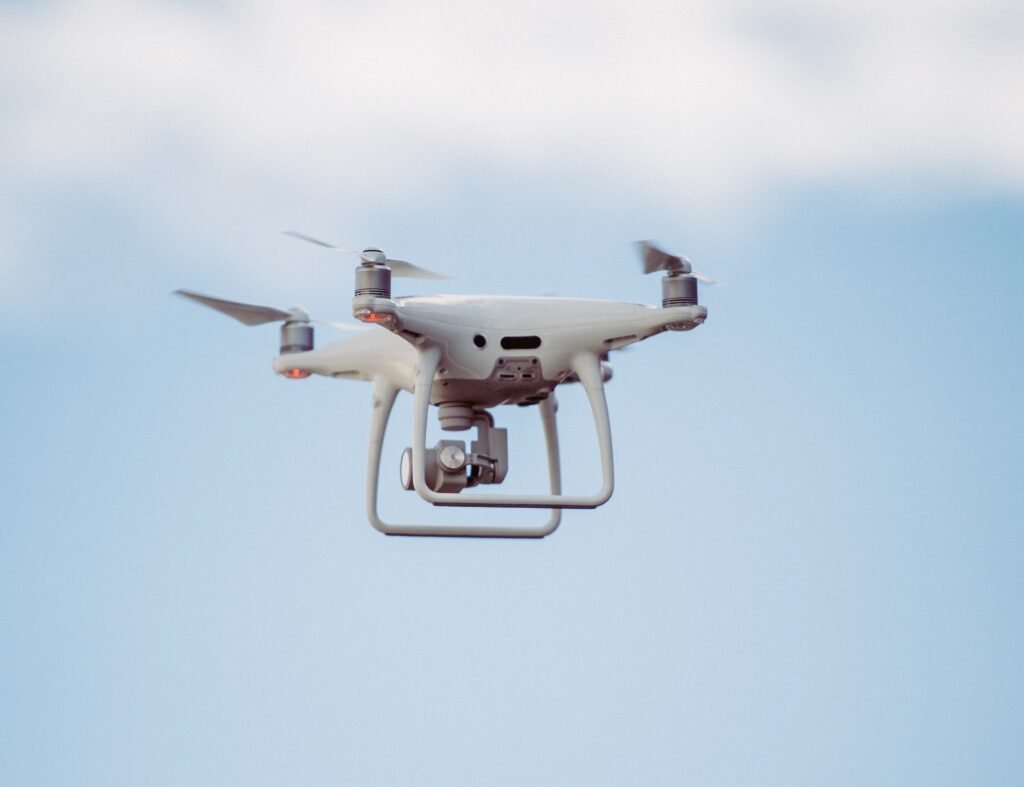Artificial Intelligence (AI) has rapidly transformed various aspects of our lives, enhancing our daily experiences and revolutionizing industries across the board. This article aims to shed light on why AI is undeniably beneficial and how it has the potential to shape a brighter, more connected future for all. From enhancing efficiency in healthcare to powering autonomous vehicles, AI is proving to be a game-changer, enabling us to accomplish tasks more efficiently, making better-informed decisions, and ultimately improving our overall quality of life. So, let’s explore the myriad reasons why artificial intelligence is not just good, but essential for the progress and advancement of our society.
Increasing Efficiency and Productivity
Automation of Repetitive Tasks
Artificial Intelligence (AI) has revolutionized the way businesses operate by automating repetitive tasks. With AI, you can streamline processes by eliminating the need for manual labor and reducing human errors. Whether it’s data entry, customer support, or inventory management, AI systems can handle these tasks with speed and accuracy. By freeing up human resources from mundane activities, businesses can focus on more strategic and creative aspects of their operations, ultimately increasing efficiency and productivity.
Improved Decision-Making
One of the significant advantages of AI is its ability to process vast amounts of data and extract valuable insights. AI algorithms can analyze complex patterns and trends that humans might miss, enabling businesses to make data-driven decisions. By leveraging AI’s computational power, organizations can optimize their processes, identify areas for improvement, and make informed choices that lead to better outcomes. With AI-enabled decision-making, businesses can stay ahead of the competition and respond quickly to changing market dynamics.
Enhanced Data Analysis
AI excels at analyzing large volumes of data and extracting meaningful information. By deploying AI-powered data analytics tools, businesses can gain a deeper understanding of their customers, market trends, and internal operations. AI algorithms can identify patterns, predict future outcomes, and provide valuable insights that drive business growth. With AI-enabled data analysis, businesses can optimize their marketing strategies, personalize customer experiences, and uncover hidden opportunities that would have otherwise gone unnoticed.
Advancements in Healthcare
Early Disease Detection
AI has transformed healthcare by enabling early disease detection, leading to more effective and timely interventions. AI algorithms can analyze patient data, such as medical records, lab results, and imaging scans, to identify patterns associated with specific diseases. By detecting diseases at their earliest stages, healthcare providers can initiate treatment plans promptly, potentially saving lives and improving patient outcomes. AI also allows for the early identification of high-risk individuals, leading to preventive measures before diseases even manifest.
Precision Medicine
In the field of precision medicine, AI plays a vital role in tailoring treatments to individual patients. By analyzing genetic and molecular data, AI algorithms can identify specific patient characteristics and predict how they will respond to different medications and therapies. This personalized approach allows healthcare providers to deliver targeted treatments, minimizing side effects and increasing treatment success rates. AI’s ability to integrate multiple sources of patient data and generate actionable insights paves the way for more precise and effective healthcare.
Robotic Surgery
AI has made significant advancements in the field of robotic surgery, revolutionizing the way complex procedures are performed. Robotic surgical systems, powered by AI algorithms, offer unprecedented precision, dexterity, and control to surgeons. These systems can analyze real-time data, provide augmented visualization, and enhance surgical accuracy. With AI-enabled robotic surgery, healthcare professionals can perform minimally invasive procedures with greater precision, resulting in reduced tissue damage, faster recovery times, and better patient outcomes.

Improved Safety and Security
Predictive Policing
AI has the potential to enhance safety and security by enabling predictive policing. With AI algorithms analyzing large sets of historical crime data, law enforcement agencies can identify patterns and trends that can help them predict and prevent criminal activities. By detecting crime hotspots, identifying high-risk areas, and optimizing resource allocation, AI-powered predictive policing can improve proactive law enforcement efforts. This technology empowers law enforcement agencies to be more effective in crime prevention and keep communities safer.
Cybersecurity
In the era of increasing cyber threats, AI is playing a crucial role in strengthening cybersecurity defenses. AI-powered cybersecurity systems can analyze vast amounts of data, identify anomalies, and detect potential security breaches in real-time. By leveraging machine learning and pattern recognition, AI algorithms can adapt and respond to evolving cyber threats. With AI-driven cybersecurity measures in place, organizations can detect and mitigate attacks more efficiently, safeguarding their sensitive data and protecting their networks from unauthorized access.
Accident Prevention
AI is also driving advancements in accident prevention by leveraging technologies like computer vision and sensor systems. AI-powered monitoring systems can analyze real-time data from cameras and sensors to detect potential hazards and risks. By continuously monitoring environments, AI systems can identify unsafe conditions and send out timely alerts, allowing for proactive intervention to prevent accidents. Whether it’s on the road, at workplaces, or in public spaces, AI-driven accident prevention measures contribute to a safer and more secure society.
Personalized Experiences
Recommendation Systems
Artificial Intelligence has transformed the way businesses personalize experiences for their customers. Recommendation systems, fueled by AI algorithms, analyze vast amounts of customer data to provide personalized recommendations. Whether it’s suggesting movies on streaming platforms or products on e-commerce websites, recommendation systems leverage AI to understand individual preferences and deliver tailored suggestions. By providing personalized experiences, businesses can enhance customer satisfaction, increase engagement, and drive loyalty.
Virtual Assistants
AI-powered virtual assistants have become an integral part of our daily lives, offering personalized assistance and convenience. These intelligent virtual helpers can perform various tasks, such as answering queries, setting reminders, and managing schedules, by understanding natural language and context. With AI at their core, virtual assistants like Siri, Alexa, and Google Assistant have improved productivity and simplified our interactions with technology. By allowing us to delegate tasks to virtual assistants, we can focus on more important activities and enjoy a more personalized experience.
Customized Marketing
AI is reshaping the field of marketing by enabling businesses to deliver highly targeted and customized campaigns. By analyzing customer data, AI algorithms can identify individual preferences, behavior patterns, and purchasing habits. This allows businesses to create personalized marketing messages and deliver them through the most effective channels for each customer segment. Through AI-powered customized marketing, businesses can enhance customer engagement, drive conversions, and build long-term relationships with their audience.

Enhanced Communication
Translation Services
Language barriers can hinder effective communication, but AI-powered translation services are breaking down these obstacles. Advanced machine learning algorithms enable instant translation of text, speech, and even images across different languages. By leveraging AI’s natural language processing capabilities, translation services have become faster and more accurate, enabling seamless communication between people from different linguistic backgrounds. AI-driven translation services not only facilitate global interactions but also foster cross-cultural understanding and collaboration.
Natural Language Processing
AI’s natural language processing (NLP) capabilities have revolutionized the way machines understand and respond to human language. NLP powers virtual assistants, chatbots, and voice-activated devices by enabling them to understand and interpret human speech or text inputs. By employing AI algorithms, these systems can comprehend nuances in communication, handle complex queries, and generate contextually appropriate responses. NLP-driven communication enhances user experience, making interactions with technology more intuitive and efficient.
Speech Recognition
AI-powered speech recognition technology has made significant strides in improving communication accessibility. These systems can transcribe spoken words into written text, enabling people with hearing impairments to participate in conversations and access information. Speech recognition technology also enhances accuracy in voice commands, making it easier to interact with devices and perform tasks hands-free. By eliminating communication barriers and enabling seamless voice interactions, AI-powered speech recognition promotes inclusivity and advances communication capabilities for all individuals.
Economic Growth and Job Creation
Automation and Increased Productivity
AI automation has the potential to significantly boost productivity and contribute to economic growth. By automating repetitive and mundane tasks, businesses can free up human resources to focus on more complex and strategic activities. With AI handling routine operations, companies can operate more efficiently, delivering products and services faster while reducing errors and costs. Automation driven by AI not only enhances productivity but also creates a demand for skilled workers who can develop, implement, and maintain AI systems.
AI-Based Industries and Startups
The rise of AI has spawned new industries and startups that drive economic growth and job creation. As AI technology advances, businesses emerge to develop and offer AI-powered solutions across various sectors. These industries create job opportunities for AI engineers, data scientists, and experts in related fields. Startups focused on AI technology also contribute to economic growth by attracting investment, driving innovation, and creating employment opportunities. The AI ecosystem fosters entrepreneurship, propelling economies forward.
Shifting Skill Requirements
The integration of AI into various industries reshapes the job market and demands a shift in skill requirements. As AI takes over repetitive and manual tasks, the workforce needs to adapt and acquire skills that complement AI technologies. There is a growing demand for individuals with expertise in AI, machine learning, data analytics, and programming. Additionally, soft skills like critical thinking, creativity, and problem-solving become even more valuable as AI handles routine tasks. By embracing the changing skill landscape, individuals can thrive in the era of AI and contribute to economic growth.

Environmental Sustainability
Energy Efficiency
AI has a significant impact on environmental sustainability by enabling energy-efficient systems and operations. AI algorithms can optimize energy usage by analyzing data from sensors and devices, optimizing power consumption, and reducing waste. Smart buildings, for example, use AI to manage heating, cooling, and lighting systems based on occupancy and external factors. By enhancing energy efficiency, AI contributes to reduced carbon footprints and promotes sustainable practices across various industries.
Natural Resource Management
AI plays a crucial role in managing natural resources more effectively and sustainably. By analyzing data from satellites, sensors, and other sources, AI algorithms can monitor and predict changes in ecosystems and resource availability. This data-driven approach allows for optimal resource allocation, such as water management, forestry, and wildlife conservation. AI-powered natural resource management ensures that we utilize resources responsibly and preserve biodiversity for future generations.
Climate Change Mitigation
Addressing climate change requires informed decision-making and innovative solutions, both of which are enhanced by AI. AI algorithms can process vast amounts of climate data, analyze trends, and develop predictive models for climate change scenarios. This enables policymakers and scientists to make evidence-based decisions and develop strategies to mitigate the effects of climate change. From optimizing renewable energy generation to predicting natural disasters, AI’s contribution to climate change mitigation is crucial for a sustainable future.
Assistive Technologies for Disabilities
Independent Living
AI-driven assistive technologies empower individuals with disabilities to live more independently. Smart home systems equipped with AI can assist with daily tasks by automating household operations, such as controlling lights, temperature, and appliances. AI-powered wearable devices can enhance mobility and provide real-time feedback to individuals with physical impairments. By leveraging AI technologies, assistive devices and systems enhance the quality of life for people with disabilities, promoting inclusivity and autonomy.
Communication Aids
AI offers significant advantages in improving communication for individuals with speech or language impairments. Augmentative and alternative communication (AAC) systems powered by AI can help individuals express themselves through various means, such as text-to-speech synthesis or gesture recognition. These systems analyze inputs and generate appropriate responses, allowing for effective communication. AI-driven communication aids break down communication barriers and give individuals with disabilities a voice, enabling meaningful connections and interactions.
Mobility Assistance
AI-based technologies are revolutionizing mobility assistance for individuals with physical disabilities. Robotic exoskeletons, powered by AI algorithms, enable people with mobility impairments to regain movement and independence. AI-driven prosthetic limbs offer more natural control and responsiveness, improving mobility and functionality. By combining robotics and AI, mobility assistive technologies are transforming the lives of individuals with disabilities, enabling them to participate more actively in society and enhancing their overall well-being.
Scientific Breakthroughs and Research
Data Analysis and Modeling
The vast amount of data generated in scientific research can overwhelm traditional analysis methods. AI provides a solution by enabling efficient data analysis and modeling. AI algorithms can process large datasets, identify patterns, and generate insights that accelerate scientific discoveries. By leveraging AI-powered data analysis, scientists can uncover new relationships, discover hidden patterns, and make breakthroughs across various fields, including medicine, chemistry, and physics. AI drives scientific research forward by transforming how data is analyzed, advancing our understanding of the world around us.
Drug Discovery
AI has the potential to revolutionize the pharmaceutical industry by accelerating drug discovery processes. AI algorithms can analyze vast amounts of data, including genetic information, chemical structures, and biological interactions, to identify potential drug candidates. By automating and optimizing the drug discovery process, AI reduces costs and speeds up the development of new medications. With AI-enabled drug discovery, researchers can explore a broader range of possibilities, leading to the discovery of novel treatments and improving healthcare outcomes.
Space Exploration
AI plays a crucial role in advancing space exploration and enabling groundbreaking discoveries. AI algorithms can analyze data from space missions, such as images, telemetry, and sensor readings, to aid in navigation, image processing, and data interpretation. AI also enables autonomous decision-making in spacecraft, allowing them to adapt to unforeseen situations and maximize their scientific output. By leveraging AI, scientists and engineers can push the boundaries of space exploration, unraveling the mysteries of the universe and expanding our knowledge of space.
Ethical Considerations and Accountability
Bias and Fairness
As AI systems become more pervasive, ethical considerations regarding bias and fairness arise. AI algorithms learn from the data they are trained on, and if the data contains biases, the AI system may exhibit biased behavior. It is crucial to ensure fairness in AI systems by regularly auditing the data and algorithms, and addressing any biases that may arise. By promoting transparency, diversity, and inclusive practices, we can mitigate the risks of biased AI systems and foster a fair and just society.
Privacy Concerns
AI’s ability to collect, analyze, and process massive amounts of data raises privacy concerns. Protecting personal information and ensuring data privacy should be a priority in the development and deployment of AI technologies. Regulations and standards that govern the storage and usage of personal data are essential to safeguard individuals’ privacy rights. Striking a balance between the benefits of AI and privacy protection is crucial to building trust and maintaining ethical practices in the AI-driven world.
Responsible Development
As AI becomes more powerful and autonomous, ensuring responsible development and deployment is essential. Ethical considerations, such as transparency, accountability, and safety, should be integral to AI systems’ design and development processes. Implementing measures for AI system auditing, risk assessments, and ongoing monitoring are crucial in identifying and mitigating potential ethical issues. By adhering to ethical guidelines and codes of conduct, we can responsibly harness the potential of AI and create a future that benefits all of humanity.
In conclusion, artificial intelligence brings numerous benefits across various aspects of our lives. From enhancing efficiency and productivity to transforming healthcare and enabling scientific breakthroughs, AI’s positive impact is undeniable. However, it is essential to address ethical considerations, privacy concerns, and ensure responsible development to create an AI-driven world that upholds fairness, transparency, and the well-being of all individuals. With careful consideration and responsible utilization, AI technology has the potential to shape a brighter future for us all.






